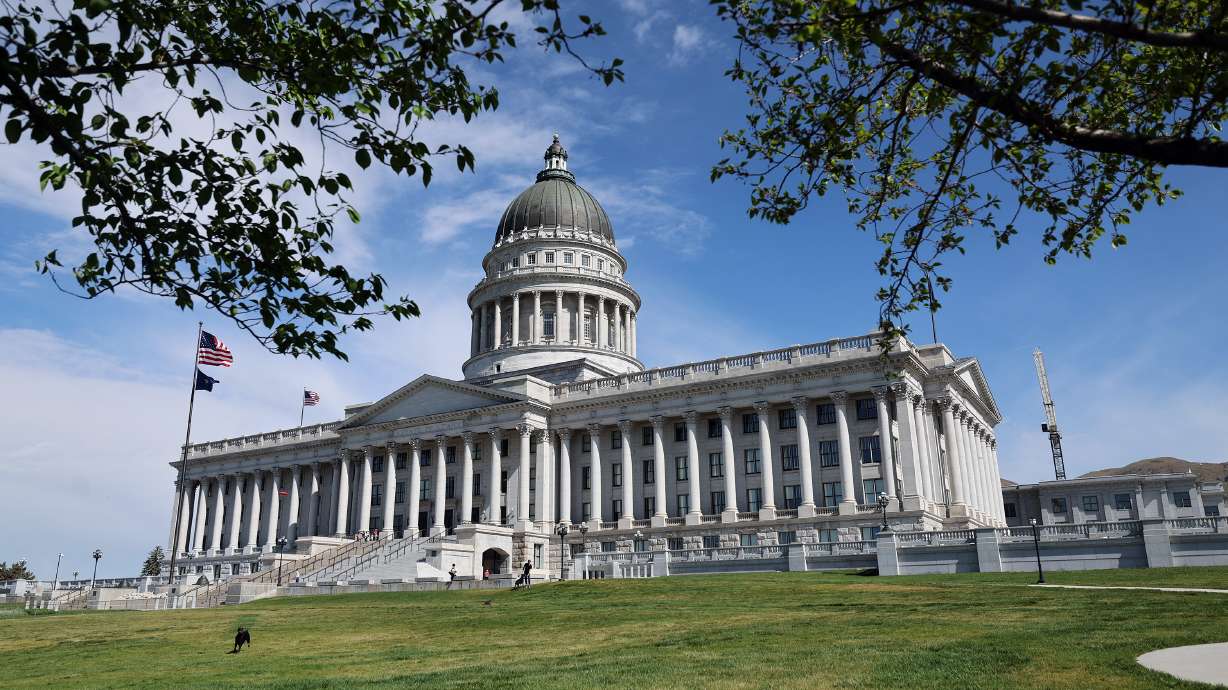Estimated read time: 4-5 minutes
This archived news story is available only for your personal, non-commercial use. Information in the story may be outdated or superseded by additional information. Reading or replaying the story in its archived form does not constitute a republication of the story.
SALT LAKE CITY — A state commission tasked with determining how to incorporate ethnic studies into Utah's K-12 curriculum heard public comments Thursday split between people worried about topics like critical race theory and others advocating for their communities' histories to be included.
The meeting was the final public listening session of the Utah Ethnic Studies Commission, which was created by the Utah Legislature in 2022 as part of a bill that requires the state to include ethnic studies in core educational standards.
Lawmakers and two governor appointees will ultimately provide recommendations to the Utah State Board of Education. A number of the commission members were absent due to President Joe Biden's visit to the state Wednesday.
Betty Sawyer, Ogden NAACP president, encouraged the commission not to whitewash history. She shared her own experience as part of the first group of Black students to integrate with a white high school.
"We know what the real is; we've seen what is real and what is not. We've all been a part of a system that has included institutional racism and it still does today. We can't just wish it away, hope it away," she said. "It's not about harping on race; it's about recognizing that we're not in a post-racial society. It's realizing that we're not colorblind because if you say you're colorblind, then you miss all of this beautiful Betty that you see before you. And for me to deny that part of my journey, I wouldn't be who I am."
Jamie Renda, president of conservative group Path Forward Utah, countered that everyone has a unique journey regardless of race.
"I feel like as we educate our children, we can't put a burden upon one group of children over another based upon anything that took place in a time period in which they did not participate in," Renda said. "We want all history taught — the good, the bad and the ugly. However, we don't want it taught through the prism of critical race theory. We don't want it taught through the prism that there are, based on skin color, the oppressors or the oppressed."
Chelsie Acosta, who teaches English as a second language at Glendale Middle School, urged the commissioners to not take a colorblind approach. She said understanding her the different racial, linguistic and country-of-origin backgrounds of her students, many who are refugees and immigrants, has been crucial to making them feel safe in the classroom.
"Lumping groups of color and lumping different identities to make everyone feel more comfortable is dangerous in the classroom, and is dangerous for those individuals and those students that we really want to succeed," Acosta said. "I don't go in and teach critical race theory.
"I do go in and teach human beings that have had a different way of life — that have had trauma, that their parents have been deported, that some parents are in prison, that have all sorts of stories — and no amount of resiliency or grit is going to even that playing field," she continued. "But the way that I go in and address them and teach and love and support them and know their stories and connect with them, that's gonna get them through high school graduation. And that is the real conversation we should be having."
Charlene Lui, with the National Association of Multicultural Education, is an educator with decades of experience in Utah schools. She asked commissioners to include the history of Hawaii becoming the 50th state, as well as the arrival of Pacific Islanders to Utah — specifically the formation of the Iosepa settlement in Tooele County in the 1880s — in the state's curriculum.
"Let our children, our students know, the Pacific Islander community as well as all other people here in Utah that we are here, that we're a viable contribution," Lui said. "We were very integral in helping to build the Salt Lake Temple. ... And we brought our traditional knowledge from Hawaii with the aqueduct, you know, taking the water from the spring and bringing it down to a very desert-like area. So we brought a lot of good, some excellent traits and skills, to Utah."
Commission member Sen. John Johnson, R-North Ogden, said that while he would like to create a sense of belonging among students, he'd rather focus on individuals than groups. Last year, Johnson introduced bills that sought to punish teachers for discussing "divisive concepts" in the classroom and to ban diversity, equity and inclusion efforts in higher education.
"I'd like to be able to do a lot of these things but take the the identity politics out of the mix. I think that's a really important thing. But there's no reason why we can't talk about different cultures and everything else," Johnson said. "We need to look at things that unite people, give them better understanding of each other but bring them together. I think if we can do that, then we're really moving forward."










